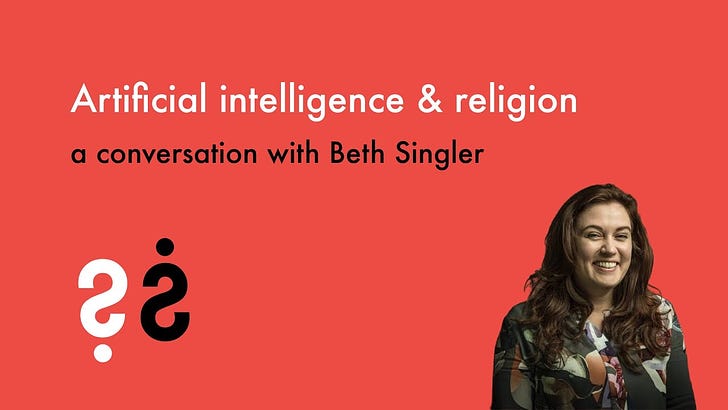Artificial Intelligence, or AI, has entered the mainstream. Apparently, it’s here to stay. For a lot of people, it represents a totally new technological phenomenon—something the average person didn’t and couldn’t see coming. Although he died in 1994, Jacques Ellul was not one of those people. As far back as 1954, he wrote in Technological Society about the possibility of “thinking machines” entering the world, and he expressed skepticism about the possibility and promise of such an entrance.
In this conversation, we hear from Beth Singler. Beth’s a religious studies scholar who has a wealth of experience with and knowledge of technology in general, and artificial intelligence in particular. She also knows her pop culture stuff, which comes up throughout our conversation for those who appreciate a good sci-fi, fantasy, alt-rock, and/or classic mockumentary reference (check out the show notes below). We talk about one of her latest books Religion and Artificial Intelligence, and as we do that, we cover a lot of topical and disciplinary territory—just as Ellul and Charbonneau would have it if they were talking or writing about technology, and AI if they were alive to see how far both have come today.
Beth’s Bio
Professor Beth Singler is the Assistant Professor in Digital Religion(s) at the University of Zurich. Prior to this she was the Junior Research Fellow in Artificial Intelligence at Homerton College, University of Cambridge, after being the post-doctoral Research Associate on the “Human Identity in an age of Nearly-Human Machines” project at the Faraday Institute for Science and Religion.
Follow Beth
Two of Beth’s Books
Religion and Artificial Intelligence (author)
The Cambridge Companion to Religion and Artificial Intelligence (editor)
Additional Notes
Spinal Tap, Spontaneous Combustion, and Keyboardists





